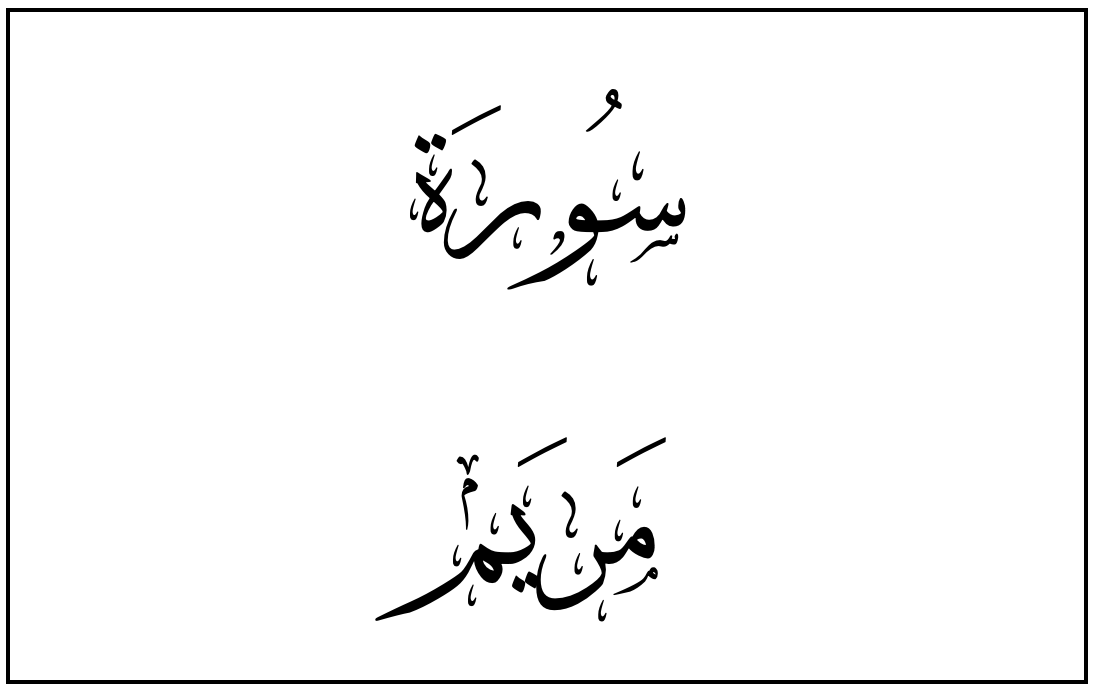Sūrat Maryam (Part 6)
Part 6 of observations on the organization, structure, and cohesion of Sūrat Maryam
See last week’s post for Part 5.
Integrative Coherence of Section [B]
Now that we’ve broken down Section [B] into its individual parts, we can take a step back and observe how the section fits seamlessly within the larger sūrah.
Recall that one of the main themes of this sūrah is that of monotheism, with ʿĪsā’s alleged divinity being of particular interest. As we will continuously see throughout the sūrah, Allah ﷻ draws comparisons of ʿĪsā with other prophets in order to demonstrate that the miraculous events and special status he was granted make him a prophet, but nothing grander.
For example, in Section [B], Allah ﷻ says that Ibrāhīm was a “prophet (nabiyyā)” and also says about Isḥāq (Isaac) and Yaʿqūb (Jacob) that, “We made them prophets (jaʿalnā nabiyyā).” This is almost the same wording used when ʿĪsā introduced himself declaring that Allah ﷻ had, “made me a prophet (jaʿalanī nabiyyā).”
We also find that both sections mention the prayer of safety and security (salām). Yaḥyā and ʿĪsā were granted safety and security on the day of their births, deaths and resurrections. Ibrāhīm uses the same prayer when leaving his father.
Another interesting parallel lay in the prayers of Zakariyyā and Ibrāhīm. Both conclude their prayers to Allah ﷻ with almost the same wording. Zakariyyā says, “...and I have never been disappointed in my supplication to You, my Lord (walam akun biduʿāi-ka rabbi shaqiyyā)” while Ibrāhīm is recorded to have said, “...I will never be disappointed in invoking my Lord (lā akūna biduʿāi rabbī shaqiyyā).” This again lends itself to the fulfillment of Allah’s gift to Ibrāhīm wherein He granted him a lineage - Zakariyyā is a descendant on the side of Isḥāq - that would hold on to monotheism.
Continuing the comparisons between Zakariyyā and Ibrāhīm, we find that both wanted their family to be an ally (waliyy) of Allah ﷻ. Zakariyyā asks that his child be a successor to him (waliyy), and by extension, an ally to Allah ﷻ. Ibrāhīm fears for his father’s future as an idol worshiper so he warns his father that he’s on course to become an ally (waliyy) of Satan if he does not turn back to Allah ﷻ.
We also find a similarity between Yaḥyā and Ibrāhīm. Allah ﷻ describes Yaḥyā as not being “disobedient ('aṣiyyā),” which is the same wording used when Ibrāhīm says to his father, “Don’t worship Satan. Satan has always been, to the Most Merciful, disobedient ('aṣiyyā).” The description of Yaḥyā, therefore, has a possible supplement later in the sūrah. If one is not worshiping Allah ﷻ then they may be in danger of worshiping Satan.
As a final example of integrative coherence for this section, consider the connection between Ibrāhīm and Maryam. Both use the idea of being “touched” in a negative connotation, but juxtapose it with the mention of Allah’s name, The Most Merciful (ar-Raḥmān). When the stranger walked in on Maryam she said, “I seek refuge with the Most Merciful (ar-Raḥmān) from you if you were God-conscious!” She is then informed of her miraculous pregnancy at which point she remarks, “How can I have a child when no man has touched me (yamsas-nī)?” This sense of fear and anxiety, mixed with hope in the Most Merciful is repeated when Ibrāhīm kindly tells his father, “I certainly fear that a punishment will touch you (yamassa-ka) from the Most Merciful (ar-Raḥmān).”
And thus concludes the analysis of Section [B].
We will continue our study next week :)



